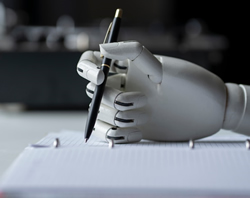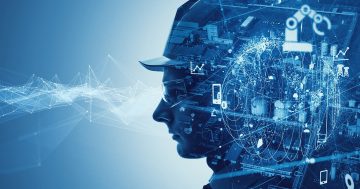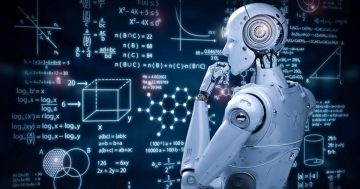Samriddhi Srivastava* says ChatGPT could be used to automate tasks or improve communication, but its impact on the blue-collar job market is uncertain.
 Industries across the globe are being constantly influenced by Artificial Intelligence (AI) and growing stronger.
Industries across the globe are being constantly influenced by Artificial Intelligence (AI) and growing stronger.
Recently, AI-powered chatbots like ChatGPT have emerged as one of the latest advancements in AI technology.
These chatbots are revolutionising conventional search engine methods by providing a higher level of convenience.
Hence, it would be safe to say that OpenAI’s innovative language model, ChatGPT, is transforming the way humans interact with AI.
ChatGPT utilises advanced machine learning algorithms that enable it to generate text resembling human language in response to various prompts.
Whether it’s report writing, chatbots, emails, text messages, or creative writing, ChatGPT can cater to all of them.
One of ChatGPT’s most significant advantages is its ability to continuously learn from the massive amounts of text data it has been trained on, leading to improved performance.
As a result, the bot’s responses are getting more precise and relevant with every passing day.
While this may sound like a blessing to some, the tool’s advanced capabilities have led to concerns about it surpassing human intelligence and potentially replacing human jobs.
To deliberate on this trending subject, People Matters got in touch with Navneet Singh, Founder and CEO of AVSAR, a next-generation recruitment consulting and outsourcing company.
In his opinion, ChatGPT is expected to “affect all levels of workers to various degrees.”
However, ChatGPT’s impact on the ever-growing blue caller workers is yet to be seen.
“The high paying blue caller workers consisting of delivery guys, BPO, customer care executives, field sales executives, business development executives as well as admin and human resources will be the ones who might be impacted by any such innovation, though predicting it is a little too early right now,” said Singh.
According to a study conducted by AVSAR’s trusted research agency, blue-collar hiring has seen rapid growth in the post-Covid times.
22.9 per cent of jobs were created especially in the delivery and retail segments as online businesses boomed.
This year, keeping in mind the excitement for the festive season as well, it is expected that blue-collared workforce hiring will surge by 7 million jobs.
In the second quarter of 2022, the same figure flattened at 3 per cent.
Additionally, the company revealed that blue-collar jobs are expected to experience a 12per cent growth in 2023 as compared to the previous year.
The projected growth indicates a positive trend for those seeking employment in this sector.
As the economy continues to recover from the impact of the pandemic, the demand for blue-collar jobs is expected to rise, providing opportunities for individuals seeking work in fields such as manufacturing, construction, and transportation.
“As with all other industries, workers and experts are waiting and watching whether ChatGPT has the potential to impact the jobs and livelihoods of blue-collar workers.
“Many would remember how it was assumed that AI-based jobs and other technological innovations will eat up the basic jobs.
“It has been seen that automation in blue-collar occupations did advance extremely quickly, thanks to technologies like self-driving vehicles and trucks.
“However, there had to be a human instructing these innovative devices, thereby decreasing the workload, but bettering the lives of the workers,” told Navneet Singh to People Matters.
Also, the impact was only partial as the large language models now have overtaken those advances in automation in pace.
Though such advanced tasks needed manpower with technical knowledge and understanding of these complex languages of instruction, upskilling was the only way for blue-collar workers.
“ChatGPT on the other hand, has the potential to replace or assist supplement in the working world, simplifying what seems complex, thereby making it easier for the blue-collar workers to be able to do tasks that were unthinkable earlier,” he added.
As an AI language model, ChatGPT is a tool that can be used to perform a variety of tasks related to language processing, such as generating text, answering questions, and assisting with language-based decision-making.
In the future, it is possible that ChatGPT could be used in certain blue-collar job settings to help automate particular tasks or improve communication between workers and managers and also customers.
For example, the bot could be used to assist with language-based tasks such as scheduling or inventory management, or communicating about delivery timelines.
“However, it is important to note that the use of ChatGPT or other AI language models in blue-collar jobs would likely depend on a variety of factors, including the specific job and industry in question, as well as the availability of other tools and technologies,” suggested the CEO of AVSAR.
High-profile blue-collar occupations are likely to be most impacted, as opposed to professions that don’t require formal school certificates, such as those for farmers, chefs, cafeteria attendants, plumbers, painters, carpenters, masons, and auto mechanics.
The use of AI technology is increasingly common in many industries, but it is difficult to predict the exact impact that ChatGPT or other AI language models will have on the blue-collar job market.
To be future-ready, one can be aware of the latest innovations and upskill themselves and become the master of technology to use it to their advantage.
However, only time can tell whether ChatGPT could have a major impact on the blue-collar job market.
It is likely that the effects will be complex and varied, and will depend on a range of factors that are difficult to predict with certainty.
*Samriddhi Srivastava is working as Senior Associate- Content with People Matters.
This article first appeared at peoplematters.in











